The Port of Naha is located in the capital city of Okinawa Prefecture, Japan, serving as the primary maritime gateway to the Ryukyu Islands. It is a vital hub for both commerce and tourism in the region. As a cruise destination, Naha is a popular port of call on itineraries exploring East Asia, offering passengers a unique blend of Japanese and indigenous Ryukyuan culture.
The port features modern facilities, including the dedicated Naha Cruise Terminal at Wakasa Pier, capable of accommodating large cruise vessels. Its strategic location provides cruise passengers with convenient access to a rich array of historical sites, vibrant shopping districts, and beautiful natural scenery unique to Okinawa.
One of the most significant historical sites is Shuri Castle, the former palace of the Ryukyu Kingdom and a UNESCO World Heritage site. Located about 20-30 minutes by car from the port, it offers a deep insight into Okinawan history and culture, though parts are under reconstruction after a fire.
For a vibrant taste of modern Naha, Kokusai Dori (International Street) is a must-visit. This bustling 2-kilometer-long street is the heart of the city's entertainment, shopping, and dining, located just a 10-15 minute taxi ride away.
Another serene UNESCO site is the Shikinaen Garden, a beautiful royal garden constructed in the 18th century. It features a unique blend of Japanese and Chinese architectural styles and is about a 20-minute drive from the port. Nearby, the Okinawa Prefectural Museum & Art Museum provides comprehensive exhibits on the island's unique nature, history, and art.
Last updated on June 22, 2025
A popular, though distant, day trip is to the Okinawa Churaumi Aquarium, one of the largest in the world. Located in Ocean Expo Park, it is approximately a 90 to 120-minute drive north of the port. Due to the travel time, this is often best visited as part of a planned shore excursion to ensure a timely return to the ship.
To the south of Naha lies the city of Itoman, home to the Peace Memorial Park, which commemorates the Battle of Okinawa. This poignant and important historical site is about a 30-40 minute drive from the cruise terminal. For scenic coastal views, Cape Manzamo is a famous rock formation about a 60-minute drive north of Naha.
Last updated on June 22, 2025
The Naha Cruise Terminal at Wakasa Pier is conveniently located close to the city center, approximately 2-3 kilometers (about 1.5 miles) west of downtown Naha and the popular Kokusai Dori. Due to the distance and often hot climate, most passengers opt for a short taxi ride, which takes about 10-15 minutes to reach the main attractions.
While walking to the city center is possible, it can take around 25-30 minutes. Cruise lines often provide shuttle buses to Kokusai Dori for a fee. The port terminal itself has basic facilities including a waiting area, restrooms, and a tourist information counter, but very limited shopping or dining options. Ships typically dock directly at the pier, making tendering an uncommon occurrence.
Last updated on June 22, 2025
The official currency used in Naha is the Japanese Yen (JPY). While major credit cards are widely accepted in department stores, larger restaurants, and hotels, it is highly recommended to carry a sufficient amount of cash for smaller shops, local markets, and transportation like taxis.
US Dollars and Euros are generally not accepted for direct transactions. Currency exchange services can be found at the Naha Airport and at major banks in the city. For convenience, ATMs that accept international cards are readily available in post offices and convenience stores, such as 7-Eleven.
Last updated on June 22, 2025
Naha is considered a very safe city with a low crime rate, consistent with the rest of Japan. Tourists can feel comfortable exploring independently during the day and evening. The local population is generally friendly and helpful to visitors.
Standard travel precautions should still be observed. Be mindful of your personal belongings in crowded areas such as Kokusai Dori and public markets. There are no specific areas that tourists need to avoid. Exploring on foot or using public transportation is generally safe and straightforward for visitors.
Last updated on June 22, 2025
Naha has a humid subtropical climate, characterized by hot summers and mild winters. The main cruise season spans from spring through autumn. Spring (March-May) and autumn (October-November) are typically the most pleasant times to visit, with warm temperatures ranging from 18°C to 26°C (64°F to 79°F) and lower humidity.
The summer months (June-September) are hot and humid, with temperatures often exceeding 30°C (86°F). This period also coincides with the rainy season and the peak of the typhoon season, which can occasionally impact cruise itineraries. Visitors should pack light clothing, sunscreen, a hat, and comfortable footwear year-round. An umbrella or light raincoat is advisable, especially during the summer.
Last updated on June 22, 2025
A variety of transportation options are available for cruise passengers in Naha. Taxis are plentiful at the cruise terminal and offer a reliable, metered service, though they can be relatively expensive for longer distances. They are the most direct way to get to the city center and nearby attractions.
The Okinawa Urban Monorail, known as the Yui Rail, is an excellent option for exploring the main city corridor. The nearest stations to the cruise port, such as Asahibashi or Kencho-mae, are a short taxi ride or a 20-25 minute walk away. The monorail provides easy access to destinations like Kokusai Dori, the DFS Galleria, and the Shuri Castle area.
A comprehensive public bus system serves the entire island, including express buses to attractions further afield like the Churaumi Aquarium. While economical, navigating the bus system can be challenging for non-Japanese speakers.
Last updated on June 22, 2025
Naha offers excellent shopping opportunities, centered around the bustling Kokusai Dori (International Street). This main thoroughfare is lined with hundreds of shops selling everything from high-end fashion to quirky souvenirs, along with numerous restaurants and cafes. Branching off from it are covered arcades like Heiwa Dori, offering a more traditional market atmosphere.
Look for unique Okinawan specialties such as beautiful hand-blown Ryukyu glass, traditional Shisa statues (guardian lion-dogs), and Bingata textiles. Popular local food products to take home include kokuto (brown sugar), chinsuko (shortbread cookies), and bottles of Awamori, the local rice liquor. For duty-free shopping, the T Galleria by DFS is a large luxury retail store accessible via the Yui Rail.
Last updated on June 22, 2025
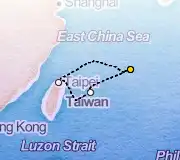
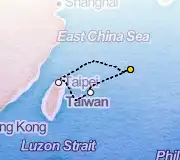
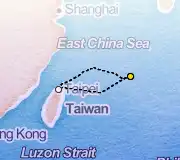
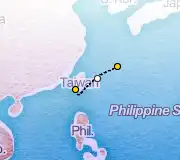
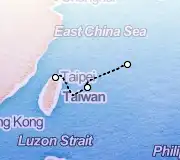




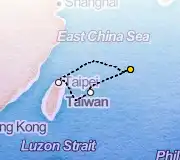
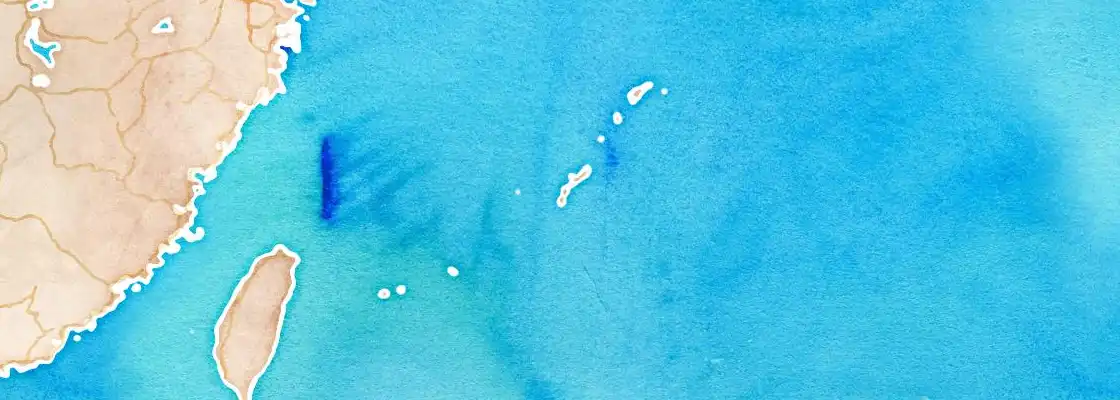
No ships scheduled in port today.
Last updated on June 13, 2025
Taxis are readily available at the cruise terminal, and the Yui Rail monorail offers convenient access to Kokusai Street and Shuri Castle. Some areas are walkable depending on your specific terminal.
Kokusai Street, a vibrant hub for shopping and dining, is often a short taxi ride or walk from the port. The historic Shuri Castle, a UNESCO site, is easily reached by taxi or monorail.
Near the port, especially along Kokusai Street and at Makishi Public Market, try Okinawan specialties like Goya Chanpuru (bitter melon stir-fry) and Okinawa Soba. Fresh seafood is also abundant.
The local currency is Japanese Yen (1 USD = 143.51 JPY). The local currency is Japanese Yen (JPY); it's best to use ATMs at convenience stores (e.g., 7-Eleven) or post offices for withdrawing Yen with international cards. Currency exchange is also available at banks or sometimes at the port.
Naha has a subtropical climate; expect warm, humid conditions, particularly from spring to autumn. Pack light, breathable clothing, a rain jacket for potential showers, sunscreen, and comfortable shoes.
Naminoue Beach is the most accessible beach, often within walking distance or a short taxi ride from the port, offering a quick city beach experience. For larger beaches, transportation further afield is needed.
Cruise line excursions offer convenience for sites like Shuri Castle or southern historical sites, while independent travel via taxi or monorail allows flexibility. Choose based on your preference for structure or independence.
Kokusai Street is the primary shopping destination for souvenirs like Shisa statues, Ryukyu glass, Bingata fabrics, and local Okinawan food products. The Makishi Public Market also offers unique local items.
Within a reasonable distance, consider visiting Okinawa World for its cultural park and Gyokusendo Cave, or the Peace Memorial Park in southern Okinawa. The Churaumi Aquarium is a popular but longer trip north.
Naha is home to Shuri Castle, the former palace of the Ryukyu Kingdom, which was an independent trading nation for centuries before becoming part of Japan.
Overall cruises from Naha are fairly affordable compared to other ports. Prices are about equal throughout the year. Check out the chart below for the monthly average cost per day.
Want to hear about the best deals and cruise tips every week? Sign up for our free weekly VIP Newsletter, customized exactly to your preferences!